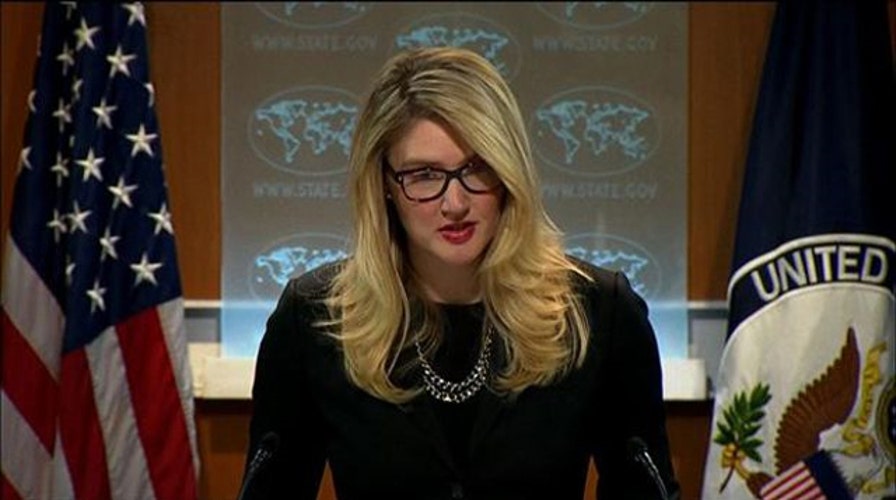State Department's Marie Harf ISIS remarks backfire
Lee Carter and Jessica Tarlov on political fallout
State Department spokeswoman Marie Harf, after coming under fire for suggesting a way to fight the Islamic State and all terrorism is by creating jobs, has an answer for her critics: Her argument is just "too nuanced" for them to understand.
Harf, in TV interviews Tuesday night, stood by her original remarks and said she was speaking about a comprehensive approach to combating "extremism."
Harf said that means airstrikes in the short-term, and going after "root causes" like poor economic conditions in the long-term.
"Longer term, we cannot kill every terrorist around the world, nor should we try," Harf said on CNN. "How do you get at the root causes of this? Look, it might be too nuanced an argument for some, like I've seen over the past 24 hours some of the commentary out there, but it's really the smart way that Democrats, Republicans, military commanders, our partners in the Arab world think we need to combat this."
Harf went on to say the approach doesn't fit "into a sound bite," when asked to respond to the intense criticism, on social media and elsewhere, of her original remarks.
On Tuesday, Rob O'Neill, former Navy SEAL Team 6 member, told Fox News a "military strategy" is what's needed to fight ISIS.
"They get paid to cut off heads -- to crucify children, to sell slaves and to cut off heads and I don't think that a change in career path is what's going to stop them," he said.
O'Neill, who claims to have fired the shot that killed Usama bin Laden, warned that the problem is spreading.
"We can't let it happen," he said. "It'll go to Saudi Arabia, it'll hit Jordan."
Harf first pointed to jobs as a counter-ISIS strategy during an interview Monday night on MSNBC -- after ISIS-aligned militants slaughtered 21 Coptic Christians in Libya.
"We're killing a lot of them, and we're going to keep killing more of them. ... But we cannot win this war by killing them," Harf said on MSNBC's "Hardball." "We need ... to go after the root causes that leads people to join these groups, whether it's lack of opportunity for jobs, whether --"
At that point, Harf was interrupted by host Chris Matthews, who pointed out, "There's always going to be poor people. There's always going to be poor Muslims."
Harf continued to argue that the U.S. should work with other countries to "help improve their governance" and "help them build their economies so they can have job opportunities for these people."
She said: "If we can help countries work at the root causes of this -- what makes these 17-year-old kids pick up an AK-47 instead of trying to start a business?"
Harf stood by the remarks Tuesday night on CNN, and on MSNBC. CNN host Wolf Blitzer challenged her statements, asking if she thinks these young men might not turn to terror if they just had a job.
Harf called that a "gross oversimplification."
Blitzer pointed out that some of the world's most notorious terrorists, including bin Laden, came from wealth and privilege.
Harf acknowledged that point. On Twitter, she also defended herself by quoting other leaders, including former President George W. Bush, who has pointed to the need to fight poverty as a way to fight terrorism.





